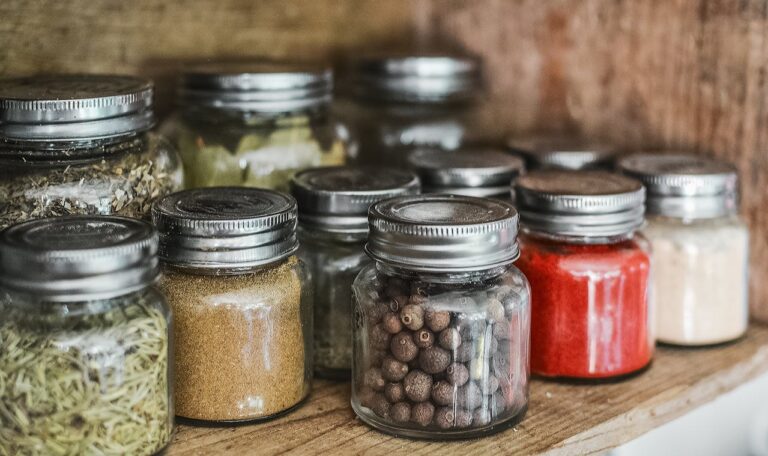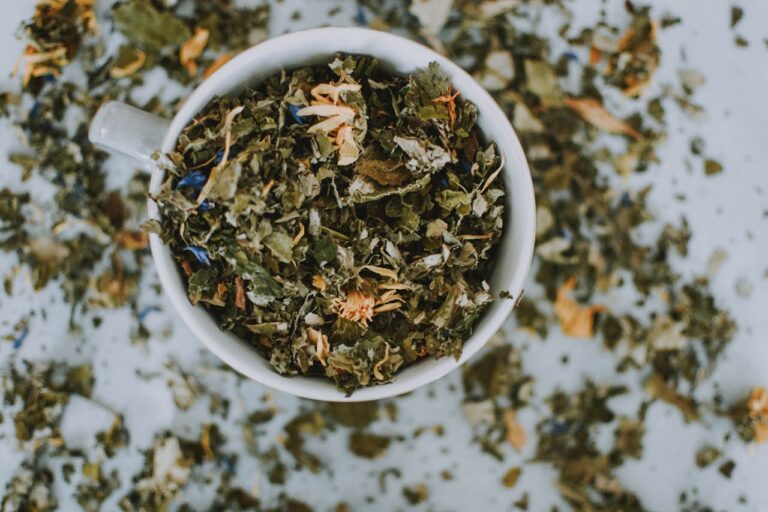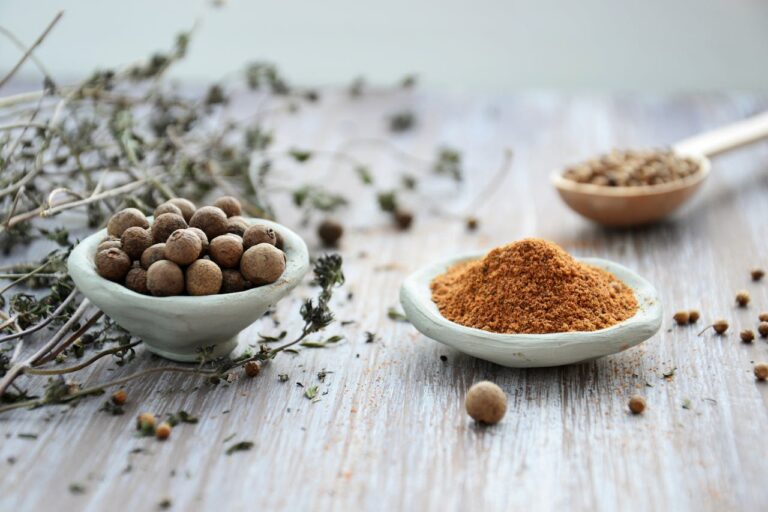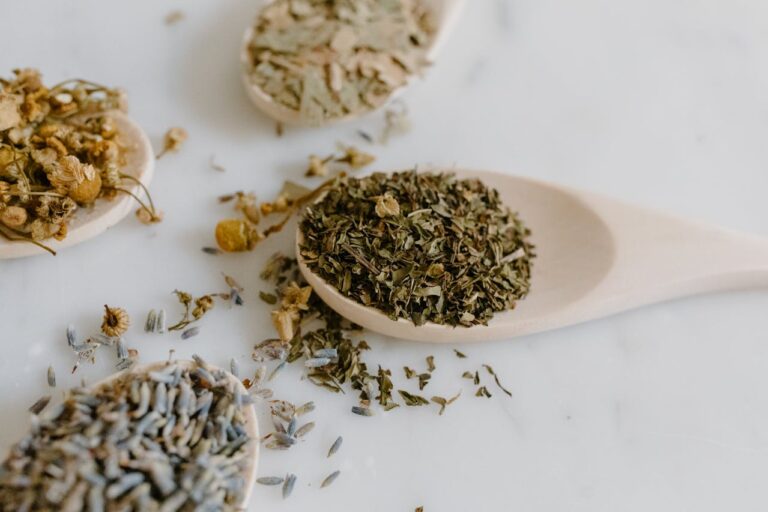Introduction
For centuries, civilizations around the world have relied on herbal infusions to support health and well-being. These potent extracts harness the power of plants, offering a natural way to incorporate herbs into daily life. However, in today’s fast-paced world, many people have lost touch with the art of preparing herbal infusions effectively.
If you’ve ever tried store-bought herbal teas or tinctures and found them lacking, you’re not alone. Many commercial products are diluted, processed, or contain added preservatives that reduce their potency. Learning how to make your own herbal infusions can ensure you’re getting the full strength and benefits of nature’s medicine.
In this guide, we’ll explore the ancient wisdom behind herbal infusions, the best methods for making them at home, and key herbs to use for various wellness goals.
Why Store-Bought Herbal Extracts May Not Be Enough
Herbal infusions are a time-honored method of extracting the medicinal properties of plants, yet modern convenience has led many people to rely on pre-packaged teas and supplements. The problem is, these products often:
- Contain minimal amounts of active compounds
- Are made with lower-quality herbs
- Include fillers and artificial ingredients
- Have a shorter shelf life due to processing methods
Because of this, many people don’t experience the true benefits that herbal infusions can offer. If you’re looking for a more potent and effective way to use herbs, making your own infusions is the solution.
Are You Really Getting the Full Benefits of Herbs?
Have you ever wondered why some herbal remedies work wonders for some people while others see little to no effect? The truth is, the strength and effectiveness of an herbal infusion depend on how it’s prepared.
- Are you using the right extraction method? Different herbs require different techniques—some need gentle steeping, while others require long, slow heat exposure.
- Are your herbs fresh and potent? The quality of the herbs you use directly impacts the final infusion. Old or low-grade herbs lose their active compounds over time.
- Are you giving your body enough time to absorb the benefits? Some herbs require consistent use over days or weeks to show results.
If you’ve been using herbal teas or store-bought tinctures with little success, it’s time to take matters into your own hands and learn the traditional methods of making herbal infusions at home.
How to Make Potent Herbal Infusions at Home
Understanding Herbal Infusions
An herbal infusion is a method of extracting the medicinal properties of herbs using water, oil, alcohol, or vinegar. Unlike a quick steeped tea, infusions are left for longer periods to draw out more beneficial compounds.
There are several types of herbal infusions:
- Hot Water Infusions (Herbal Teas) – Best for delicate herbs like chamomile, peppermint, and lemon balm.
- Cold Water Infusions – Ideal for mucilaginous herbs like marshmallow root and hibiscus.
- Oil Infusions – Used for making herbal oils and balms.
- Alcohol-Based Tinctures – Highly concentrated extracts preserved for long-term use.
- Vinegar Infusions – A great alternative to alcohol tinctures for medicinal and culinary purposes.
Step-by-Step Guide to Making a Basic Herbal Infusion
1. Hot Water Infusion (Basic Herbal Tea)
- Ingredients: 1-2 teaspoons of dried herbs (or a handful of fresh herbs), 1 cup of hot water
- Method:
- Boil water and pour it over the herbs.
- Cover and steep for 10-15 minutes.
- Strain and enjoy.
2. Stronger Overnight Infusion
- Ingredients: 1/4 cup dried herbs, 4 cups boiling water
- Method:
- Place herbs in a jar and cover with hot water.
- Seal the jar and let it steep overnight (8-12 hours).
- Strain and store in the fridge for up to 3 days.
3. Oil-Based Herbal Infusion
- Ingredients: Dried herbs, carrier oil (olive, coconut, or almond oil)
- Method:
- Fill a jar halfway with dried herbs.
- Pour oil over the herbs until fully submerged.
- Let it sit in a warm, sunny spot for 2-6 weeks, shaking occasionally.
- Strain and store in a dark glass bottle.
4. Alcohol-Based Tincture
- Ingredients: Dried herbs, high-proof alcohol (vodka or brandy)
- Method:
- Fill a jar 1/3 full with dried herbs.
- Pour alcohol over the herbs until completely covered.
- Seal and store in a cool, dark place for 4-6 weeks, shaking occasionally.
- Strain and store in dropper bottles.
Herbal Infusions Table: Best Herbs for Common Health Concerns
| Concern | Best Herbs for Infusion |
|---|---|
| Digestion | Peppermint, Ginger, Fennel |
| Relaxation | Chamomile, Lemon Balm, Lavender |
| Immune Support | Echinacea, Elderberry, Thyme |
| Energy Boost | Ginseng, Green Tea, Nettle |
| Skin Health | Calendula, Rose, Burdock Root |
Tips for Making the Most of Your Herbal Infusions
- Use high-quality, organic herbs whenever possible.
- Store infusions properly in airtight glass containers away from direct sunlight.
- Be consistent—herbs often work best with regular use.
- Experiment with different combinations to find what works for you.
Conclusion
Herbal infusions are a simple yet powerful way to harness the healing properties of plants. By making them at home, you ensure potency, purity, and effectiveness. Whether you’re looking to support digestion, boost immunity, or simply enjoy a relaxing herbal tea, learning this ancient art can transform your wellness routine.
Disclaimer:
This article is for informational purposes only and does not provide medical advice. Consult a qualified healthcare professional before using herbal remedies, especially if you are pregnant, nursing, or taking medications.
Ready to start your herbal infusion journey? Try one of the recipes above and experience the benefits firsthand!







